Understanding why the UAE is tech-friendly requires examining a remarkable transformation that positioned this desert nation as a global technology powerhouse. The United Arab Emirates revolutionised its economy through strategic technology adoption, visionary leadership, and unprecedented investment in digital infrastructure. This comprehensive analysis reveals how the Emirates became the Middle East’s premier destination for tech innovation and entrepreneurship.
The UAE’s tech-friendly environment emerged through deliberate policy decisions spanning decades of forward-thinking governance. Leaders recognised early that oil reserves would eventually decline, necessitating economic diversification through knowledge-based industries. This prescient understanding drove massive investments in telecommunications, artificial intelligence, and smart city technologies.
Today, the UAE attracts global tech giants, innovative startups, and brilliant minds seeking opportunities within supportive regulatory frameworks. The nation’s success demonstrates how strategic vision combined with practical implementation can transform traditional economies into technological leaders.
Historical Foundations of Technological Leadership
The UAE’s technology journey began long before modern smart city concepts captured global attention. Early telecommunications infrastructure development laid crucial groundwork for today’s sophisticated digital ecosystem. These foundational investments demonstrate why the UAE is tech-friendly through consistent long-term planning rather than reactive policy-making.
Etisalat’s establishment in 1976 marked the beginning of systematic telecommunications development across the Emirates. The company’s expansion provided comprehensive connectivity that enabled economic growth and international communication. Rural areas received equal attention, ensuring nationwide digital inclusion rather than urban-focused development.
The Dubai Internet City project launched in 2000 represented revolutionary thinking about technology zones and international business attraction. This pioneering free zone offered unprecedented benefits including 100% foreign ownership, tax exemptions, and streamlined business registration processes.
Major technology corporations including Microsoft, Oracle, and IBM established regional headquarters within Dubai Internet City during its first operational years. These prestigious anchor tenants validated the UAE’s commitment to becoming a regional technology hub.
The Smart Government Initiative launched in 2013 transformed public service delivery through comprehensive digitalisation programmes. Citizens gained online access to government services years before similar initiatives appeared in developed nations. This early adoption showcased governmental commitment to technological progress.
Educational technology integration began simultaneously with infrastructure development through comprehensive school computerisation programmes. Students gained early exposure to digital tools that prepared them for knowledge economy careers.
Banking sector modernisation paralleled telecommunications development through electronic payment systems, online banking platforms, and mobile financial services. The financial infrastructure supported e-commerce growth and international business transactions.
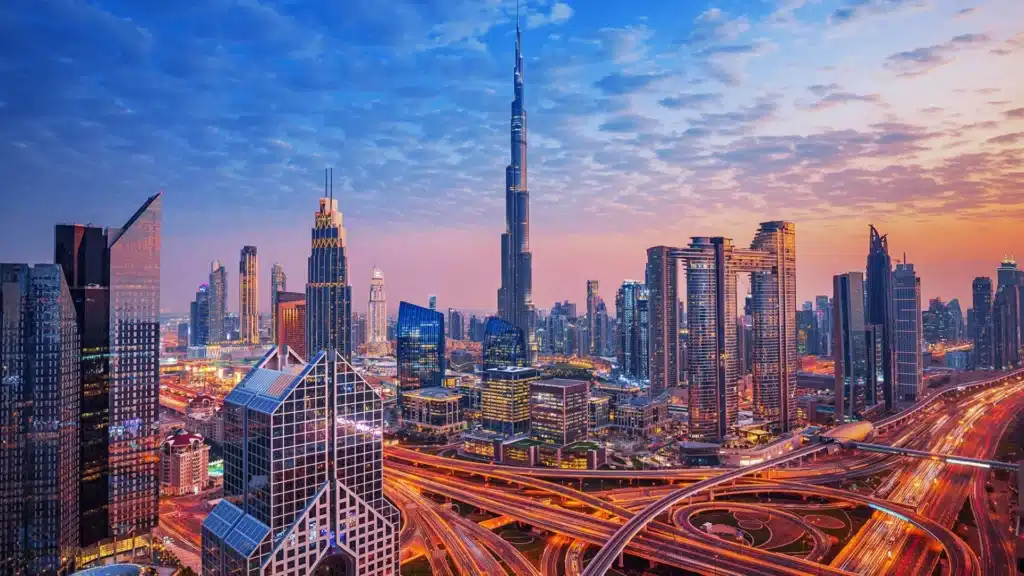
Visionary Leadership Driving Technological Progress
Leadership vision remains the primary factor explaining why the UAE is tech-friendly compared to regional neighbours. His Highness Sheikh Mohammed bin Rashid Al Maktoum’s technology advocacy created governmental support essential for sustained innovation ecosystem development.
The UAE Vision 2021 strategy established concrete goals for becoming one of the world’s most innovative nations. This comprehensive framework addressed education, infrastructure, governance, and economic diversification through coordinated policy initiatives.
Dubai Plan 2021 complemented national objectives with emirate-specific technology targets including smart city transformation, blockchain implementation, and artificial intelligence integration. The detailed roadmap provided clear milestones for measuring progress.
“Innovation is not an option but a necessity,” Sheikh Mohammed frequently emphasises to government officials and international audiences.
Leadership commitment extends beyond policy statements through substantial budget allocations for technology initiatives. Government spending priorities consistently favour innovation infrastructure over traditional development projects.
Regular leadership engagement with global technology leaders demonstrates serious commitment to maintaining competitive advantage. High-profile meetings with executives from Apple, Google, Amazon, and Meta showcase the UAE’s strategic importance.
Ministerial appointments reflect technological priorities through specialised portfolios including the Minister of Artificial Intelligence and the Minister of Advanced Technology. These positions ensure dedicated advocacy for emerging technology sectors.
International partnership development receives direct leadership attention through bilateral agreements focusing on technology transfer, research collaboration, and innovation exchange programmes. These relationships accelerate knowledge acquisition and capability development.
World-Class Digital Infrastructure Development
The UAE’s digital infrastructure ranks among the world’s most advanced, providing foundation services essential for technology sector success. Comprehensive 5G network coverage enables sophisticated applications including autonomous vehicles, smart manufacturing, and augmented reality experiences.
Internet connectivity speeds consistently rank within global top ten performance metrics according to international benchmarking studies. High-speed broadband reaches 99% of residential and commercial properties across all emirates.
Data centre facilities attract international cloud service providers seeking regional presence for Middle Eastern and African markets. Purpose-built technology parks provide specialised infrastructure including redundant power supplies and advanced cooling systems.
Smart Dubai initiatives integrate artificial intelligence, Internet of Things sensors, and blockchain technology throughout urban infrastructure. Traffic management systems, energy distribution networks, and public transport utilise real-time data analytics for optimisation.
Cashless payment systems achieve near-universal adoption through government mandate and private sector cooperation. Digital wallets, contactless cards, and mobile payment applications replace traditional cash transactions across most commercial environments.
Cybersecurity infrastructure protects critical systems through advanced threat detection, incident response capabilities, and international cooperation agreements. The UAE Cybersecurity Council coordinates national defence against digital threats.
Telecommunications redundancy ensures business continuity through multiple international cable connections, satellite backup systems, and distributed network architecture. Service reliability exceeds 99.9% uptime standards across commercial and residential sectors.
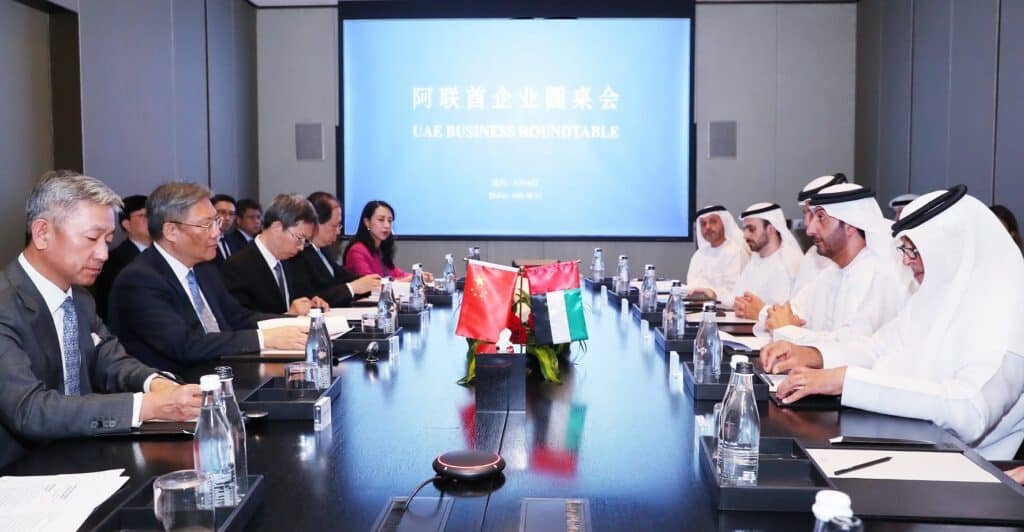
Supportive Regulatory Environment and Business Climate
Regulatory frameworks demonstrate why the UAE is tech-friendly through policies specifically designed to attract international technology companies and support local innovation. Free zones offer compelling advantages that compete effectively with established global technology centres.
The Dubai International Financial Centre provides comprehensive legal framework based on English common law principles familiar to international businesses. Specialised courts handle commercial disputes with expertise in complex technology transactions.
Abu Dhabi Global Market complements DIFC services through additional specialisation in financial technology, Islamic finance technology, and sustainable technology sectors. Competition between emirates benefits businesses through improved service quality.
100% foreign ownership permissions within designated zones eliminate traditional partnership requirements that historically complicated international business establishment. Companies retain complete operational control whilst accessing regional markets.
Tax exemption policies provide significant cost advantages including zero corporate income tax, no personal income tax, and minimal administrative fees. These benefits substantially improve business profitability compared to higher-tax jurisdictions.
Intellectual property protection receives strong enforcement through specialised courts, international treaty compliance, and dedicated investigation units. Technology companies report confidence in legal protection for proprietary innovations.
Employment visa flexibility enables companies to recruit international talent through streamlined processes and reduced bureaucratic requirements. Golden Visa programmes provide long-term residency for qualified professionals and investors.
Licensing procedures utilise digital platforms that minimise processing time and documentation requirements. Most business licenses receive approval within days rather than months typical in other jurisdictions.
Innovation Hubs and Research Ecosystem
Strategic development of specialised innovation districts creates concentrated environments where technology companies, research institutions, and support services collaborate effectively. These hubs demonstrate why the UAE is tech-friendly through practical infrastructure supporting innovation activities.
Dubai Internet City houses over 1,600 technology companies spanning software development, telecommunications, e-commerce, and digital media sectors. The zone’s success prompted expansion through additional phases accommodating growing demand.
Masdar City represents sustainable technology integration through renewable energy systems, smart building technologies, and environmental monitoring networks. The development serves as living laboratory for clean technology innovation.
Dubai Design District attracts creative technology companies focusing on digital design, gaming development, and multimedia production. The zone bridges traditional creative industries with emerging digital technologies.
Khalifa University of Science and Technology leads regional research through advanced laboratories, international partnerships, and industry collaboration programmes. The institution produces graduates qualified for high-technology career opportunities.
American University of Sharjah contributes engineering and computer science research through specialised programmes addressing regional technology challenges. Faculty members maintain connections with Silicon Valley and European research centres.
NYUAD Research Institute conducts interdisciplinary studies combining artificial intelligence, data science, and social sciences. International faculty bring global perspectives to local research initiatives.
Incubator programmes support startup development through mentorship, funding access, and market entry assistance. Success stories include regional unicorns that achieved billion-dollar valuations.

Major Technology Events and Global Recognition
International technology events demonstrate the UAE’s commitment to global engagement whilst showcasing local capabilities to worldwide audiences. These gatherings explain why the UAE is tech-friendly through practical evidence of successful technology sector development.
GITEX Technology Week attracts over 100,000 visitors annually including executives from major multinational corporations, government officials, and technology entrepreneurs. The event ranks among the world’s largest technology exhibitions.
Startup demonstrations at GITEX showcase innovative solutions addressing local and global challenges. Venture capital firms use the event for deal-making activities that provide crucial funding for emerging companies.
The World Government Summit explores technology’s role in future governance through presentations from global thought leaders. Sessions address artificial intelligence ethics, digital privacy, and smart city development strategies.
AI Everything conference positions Dubai as a global artificial intelligence centre through comprehensive programming covering machine learning, robotics, and automation applications across industries.
Blockchain conferences attract international developers, investors, and regulators interested in distributed ledger technology applications. The UAE’s blockchain strategy provides practical case studies for global implementation.
Gaming and esports events recognise the growing importance of entertainment technology sectors. Prize pools and sponsorship levels rival established international tournaments.
Cybersecurity summits address growing importance of digital defence capabilities through knowledge sharing between government agencies, private sector organisations, and international partners.
Space Technology and Scientific Achievement
The Emirates Mars Mission represents the UAE’s most visible technological achievement whilst demonstrating capabilities extending beyond terrestrial applications. This ambitious project showcases why the UAE is tech-friendly through commitment to cutting-edge scientific endeavours.
The Hope Probe’s successful Mars orbit insertion in February 2021 made the UAE the fifth nation to reach Mars and the first Arab country to achieve interplanetary exploration. This historical accomplishment generated tremendous international recognition.
Scientific objectives include comprehensive atmospheric studies that contribute new knowledge to global Mars research efforts. Data sharing agreements ensure international collaboration benefits from Emirati investment.
Mohammed bin Rashid Space Centre serves as regional hub for satellite development, astronaut training, and space research activities. The facility attracts international partnerships and commercial satellite services.
The UAE Astronaut Programme selected and trained the first Emirati astronauts who completed International Space Station missions. These achievements inspire students pursuing science and technology careers.
Satellite technology development includes Earth observation, communications, and navigation systems that support both governmental and commercial applications. Local capabilities reduce dependence on foreign suppliers.
Space legislation provides comprehensive framework for commercial space activities including satellite launches, space tourism, and asteroid mining operations. Forward-thinking regulations position the UAE as space industry destination.
Educational partnerships with NASA, ESA, and other space agencies provide knowledge transfer opportunities whilst building local expertise in advanced aerospace technologies.
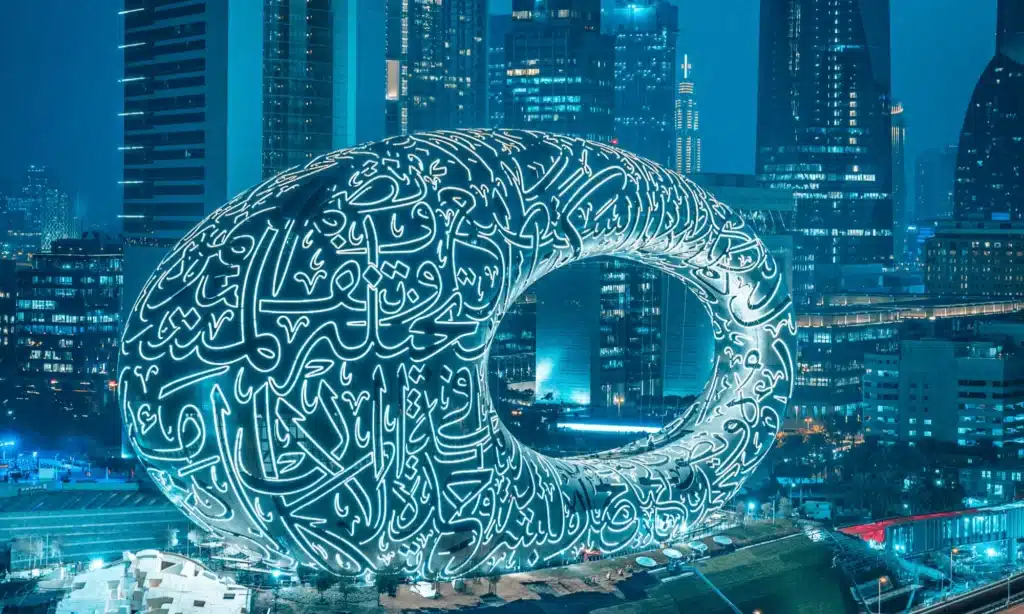
Artificial Intelligence Strategy and Implementation
The UAE’s artificial intelligence strategy demonstrates systematic approach to emerging technology adoption that explains why the UAE is tech-friendly through practical implementation rather than theoretical planning. Government commitment extends across multiple sectors and applications.
Minister of Artificial Intelligence Omar bin Sultan Al Olama leads comprehensive AI strategy development with targets including 2031 positioning as global AI hub. The dedicated ministerial portfolio ensures high-level advocacy and resource allocation.
“Our mission is to position the UAE as a global hub for artificial intelligence by 2031,” Al Olama explains to international technology conferences.
Government service AI integration includes automated document processing, intelligent chatbots, and predictive analytics for policy development. Citizens experience improved service quality through reduced waiting times and enhanced accuracy.
Healthcare AI applications include diagnostic imaging analysis, treatment recommendation systems, and epidemic monitoring platforms. The COVID-19 response utilised AI extensively for contact tracing and resource allocation.
Transportation AI deployment spans autonomous vehicle testing, traffic optimisation systems, and intelligent logistics management. Dubai’s autonomous vehicle strategy targets 25% of transportation being driverless by 2030.
Education AI initiatives include personalised learning platforms, automated assessment systems, and student performance prediction models. These technologies improve educational outcomes whilst reducing teacher administrative burdens.
Economic AI applications include algorithmic trading systems, credit risk assessment models, and market trend analysis tools. Financial services firms utilise AI for competitive advantage in regional markets.
Ethics frameworks address AI bias, privacy protection, and algorithmic transparency through comprehensive guidelines developed with international expert consultation. Responsible AI deployment ensures public trust and acceptance.
Fintech Revolution and Digital Banking
Financial technology advancement represents crucial component explaining why the UAE is tech-friendly through progressive regulatory approaches and innovative service delivery. Traditional banking transformation enables broader digital economy development.
Central Bank digital currency research explores blockchain-based payment systems that could replace traditional cash transactions. The digital dirham project investigates technical feasibility and economic implications.
Islamic fintech development addresses unique requirements of Sharia-compliant financial products through technology-enabled solutions. Digital sukuk, blockchain-based zakat collection, and automated halal certification attract global Islamic finance attention.
Regulatory sandbox programmes allow fintech startups to test innovative products within controlled environments before full market launch. This approach balances innovation encouragement with consumer protection.
Open banking initiatives require traditional banks to share customer data with authorised third-party providers. This promotes competition whilst enabling innovative financial services development.
Cryptocurrency regulations provide clear framework for digital asset trading, custody, and investment activities. Balanced approach attracts legitimate businesses whilst preventing illegal activities.
Cross-border payment solutions utilise blockchain technology for faster, cheaper international transfers. These systems particularly benefit regional trade and expatriate remittances.
Insurance technology applications include automated claims processing, risk assessment algorithms, and parametric insurance products. Digital transformation improves customer experience whilst reducing operational costs.
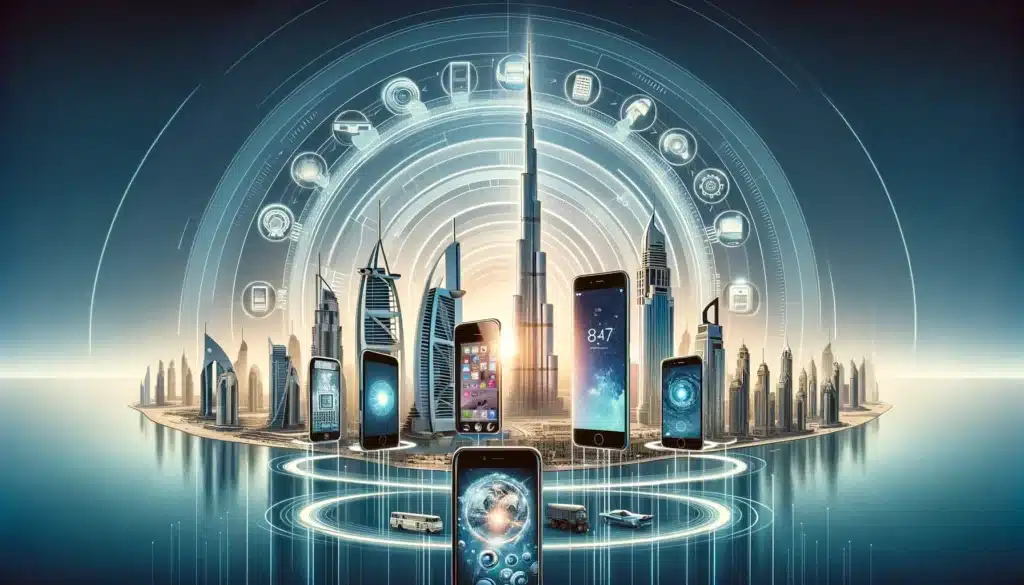
Sustainable Technology and Green Innovation
Environmental technology development demonstrates how the UAE addresses climate change through innovation rather than economic restriction. This approach explains why the UAE is tech-friendly whilst maintaining environmental responsibility.
Renewable energy projects include solar power installations, wind farms, and experimental technologies like concentrated solar power with molten salt storage. The UAE aims for 50% clean energy by 2050.
Carbon capture technology research addresses emissions from traditional energy sources through innovative storage and utilisation solutions. Pilot projects test commercial feasibility of large-scale deployment.
Water technology innovation includes desalination efficiency improvements, wastewater recycling systems, and atmospheric water generation devices. Desert agriculture benefits from advanced irrigation technologies.
Electric vehicle infrastructure development includes nationwide charging networks, battery technology research, and autonomous vehicle testing programmes. Government fleets increasingly utilise electric vehicles for demonstration purposes.
Smart grid technology integrates renewable energy sources with traditional power generation through advanced control systems. Real-time demand management optimises energy efficiency across the distribution network.
Green building technology incorporates energy-efficient materials, intelligent climate control systems, and integrated renewable energy generation. Regulatory requirements increasingly mandate sustainable construction practices.
Waste management technology includes automated sorting systems, recycling optimisation algorithms, and waste-to-energy conversion facilities. Circular economy principles guide policy development and implementation strategies.
Public-Private Partnership Success Stories
Collaborative projects between government agencies and private companies demonstrate why the UAE is tech-friendly through practical cooperation that achieves mutual benefits. These partnerships accelerate innovation whilst reducing public sector risk.
Dubai Electricity and Water Authority partnered with Siemens to develop regional hydrogen production capabilities using renewable energy sources. This collaboration addresses future energy storage requirements whilst building local expertise.
Emirates airlines collaborates with technology companies for aircraft maintenance optimisation, passenger service enhancement, and operational efficiency improvements. AI applications reduce delays whilst improving customer satisfaction.
Dubai Health Authority partners with international technology firms for electronic health records, telemedicine platforms, and diagnostic AI systems. These collaborations improve healthcare quality whilst reducing costs.
Dubai Municipality utilises IoT sensors and data analytics for waste management optimisation, air quality monitoring, and urban planning decision support. Private technology providers supply integrated solutions.
Roads and Transport Authority collaborates with autonomous vehicle manufacturers for testing programmes and infrastructure development. These partnerships prepare Dubai for driverless transportation systems.
Dubai Police utilise advanced technologies including facial recognition, predictive policing algorithms, and drone surveillance systems. Technology partnerships enhance public safety whilst respecting privacy rights.
Educational partnerships between universities and technology companies provide practical training, research collaboration, and employment pathways for graduates entering technology careers.
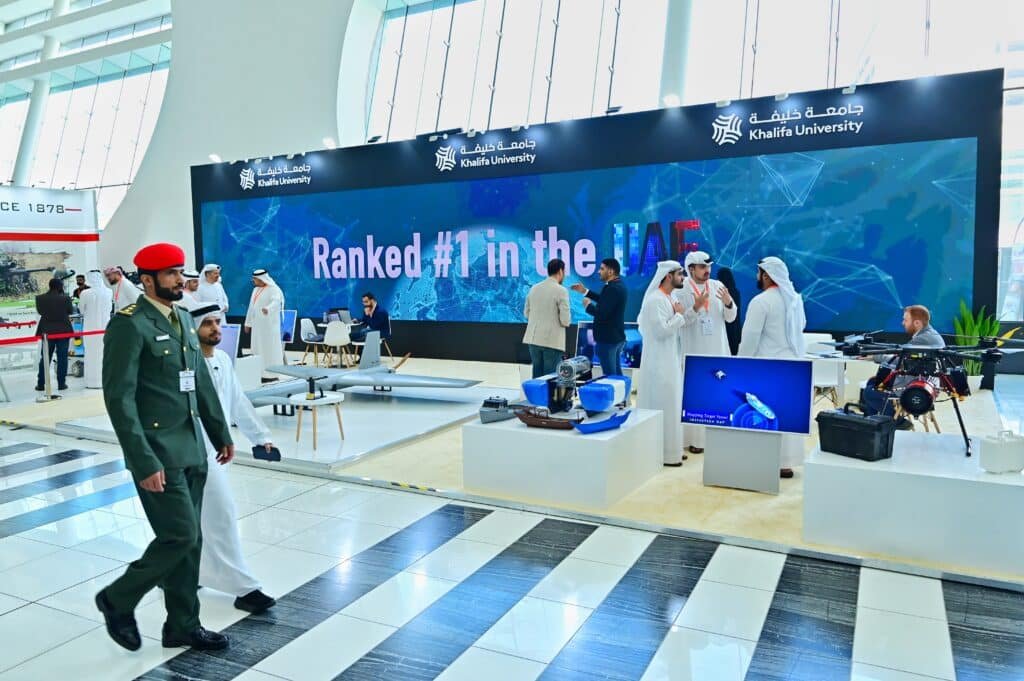
Healthcare Technology and Medical Innovation
Medical technology advancement demonstrates comprehensive approach to healthcare modernisation that attracts international patients and pharmaceutical companies. This sector growth explains why the UAE is tech-friendly through practical applications improving quality of life.
Telemedicine platforms enable remote consultations, chronic disease monitoring, and specialist access across geographic barriers. Rural residents benefit from urban medical expertise without travel requirements.
AI diagnostic systems analyse medical imaging with accuracy levels exceeding human specialists in certain applications. Radiology departments utilise machine learning for faster, more accurate diagnosis.
Robotic surgery capabilities attract regional patients seeking advanced treatment options. Minimally invasive procedures reduce recovery time whilst improving surgical precision.
Electronic health records provide comprehensive patient information sharing between healthcare providers, emergency services, and insurance companies. Interoperability standards ensure system compatibility.
Pharmaceutical research facilities conduct clinical trials for international companies whilst building local biotechnology capabilities. Regulatory frameworks support drug development whilst ensuring patient safety.
Precision medicine initiatives utilise genetic testing and personalised treatment protocols for cancer care, rare diseases, and chronic conditions. Advanced laboratories provide sophisticated diagnostic capabilities.
Mental health technology includes AI-powered assessment tools, virtual reality therapy applications, and mobile counselling platforms. Digital solutions address growing mental health awareness and treatment demands.
Education Technology and Human Capital Development
Educational technology integration creates skilled workforce essential for continued technology sector growth. This investment in human capital development explains why the UAE is tech-friendly through long-term capability building rather than short-term attraction strategies.
Digital classroom initiatives provide students with tablets, high-speed internet access, and interactive learning software. Teachers receive comprehensive training for effective technology integration.
AI tutoring systems provide personalised learning experiences that adapt to individual student needs, learning styles, and progress rates. These systems improve educational outcomes whilst reducing teacher workloads.
Virtual reality applications enable immersive learning experiences for subjects including history, science, and technical training. Students explore ancient civilisations or molecular structures through interactive simulations.
Coding education programmes introduce programming concepts from elementary school through university levels. Students develop computational thinking skills essential for technology careers.
Online learning platforms provide access to international courses, expert instructors, and specialised training programmes. Remote learning capabilities proved essential during pandemic disruptions.
Industry collaboration programmes connect students with technology companies through internships, mentorship opportunities, and project-based learning. These relationships improve employment prospects whilst addressing industry skill requirements.
Research opportunities at universities attract international faculty and graduate students pursuing advanced degrees in technology fields. Academic excellence builds regional reputation for educational quality.
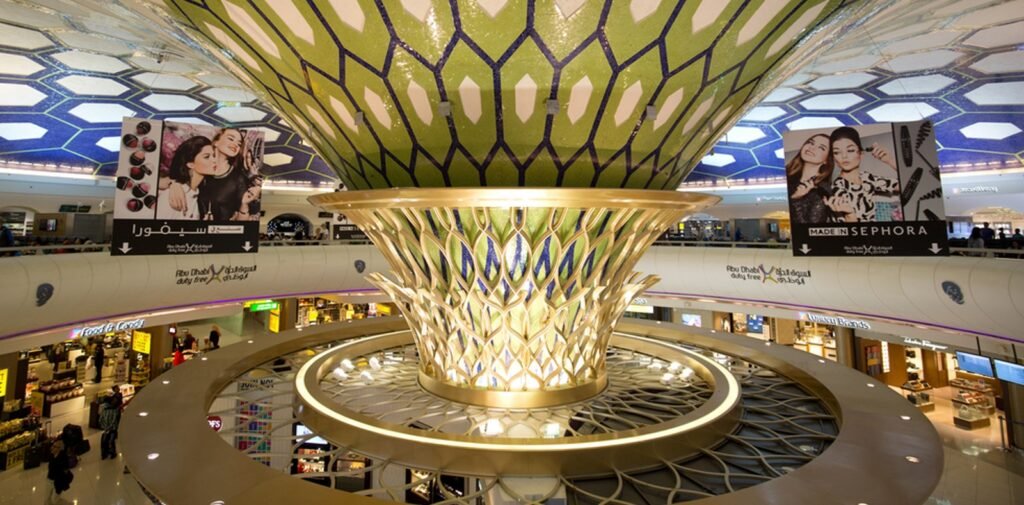
Future Technology Initiatives and Global Leadership
Forward-looking projects demonstrate continued commitment to technological leadership whilst addressing emerging global challenges. These initiatives reinforce why the UAE is tech-friendly through sustained innovation investment and strategic planning.
Dubai 10X initiative aims to position the city ten years ahead of other global centres through comprehensive technology adoption across government services, urban infrastructure, and economic development.
Quantum computing research explores advanced computational capabilities for cryptography, optimisation problems, and scientific research applications. International partnerships accelerate capability development.
Biotechnology investment includes genetic research, pharmaceutical development, and agricultural innovation programmes. The sector addresses food security whilst building knowledge economy capabilities.
Autonomous vehicle testing programmes prepare infrastructure and regulations for widespread deployment of self-driving cars, buses, and delivery vehicles. Safety protocols ensure public acceptance.
Smart city integration connects various technology systems including transportation, utilities, emergency services, and environmental monitoring through comprehensive data platforms.
Blockchain implementation extends beyond cryptocurrency to include supply chain tracking, document verification, and government service delivery. Dubai aims to become the world’s first blockchain-powered city.
International cooperation agreements with technology-leading nations facilitate knowledge transfer, joint research projects, and technology commercialisation opportunities.
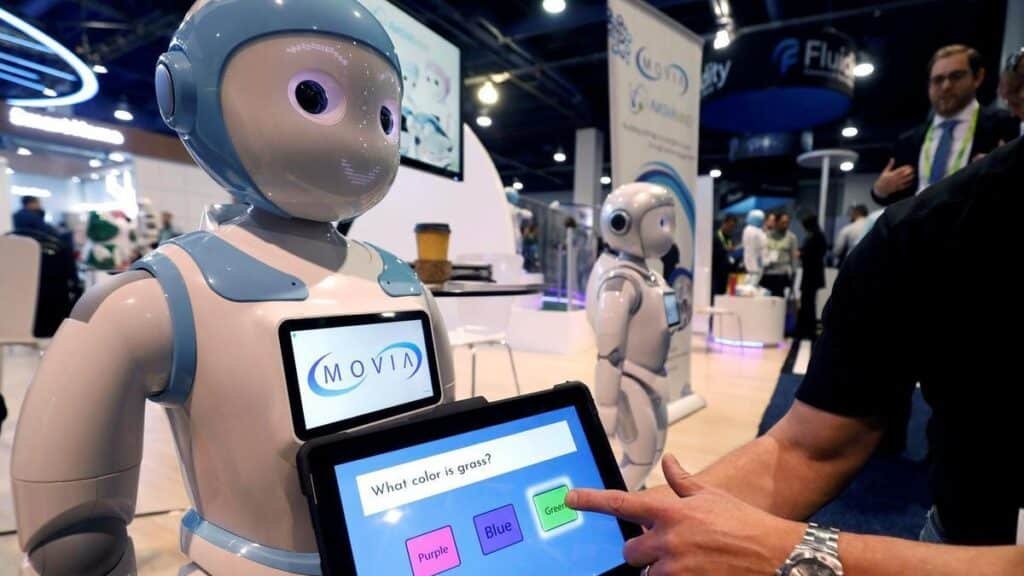
Global Impact and Regional Influence
The UAE’s technology achievements influence regional development whilst contributing to global innovation networks. This international impact reinforces why the UAE is tech-friendly through demonstrated success that inspires emulation.
Regional technology companies increasingly establish UAE operations to access international markets, advanced infrastructure, and skilled workforce. The Emirates serves as Middle Eastern technology hub.
Development aid programmes share UAE technology expertise with developing nations through capacity building, infrastructure development, and educational exchanges. These initiatives promote regional stability.
International standards development includes UAE participation in global technology governance, cybersecurity cooperation, and ethical AI frameworks. Leadership roles influence worldwide technology policies.
Investment funds support technology startups globally whilst attracting promising companies to establish UAE operations. Cross-border venture capital flows strengthen innovation ecosystems.
Trade agreements include technology transfer provisions, intellectual property protections, and digital services frameworks. These arrangements facilitate international business development.
Cultural exchange programmes bring international students, researchers, and professionals to UAE institutions whilst sending Emiratis abroad for advanced training and education.
The question of why the UAE is tech-friendly finds answers in systematic planning, substantial investment, and unwavering leadership commitment to technological progress. This comprehensive approach transformed a traditional economy into a global technology destination that continues advancing innovation boundaries.



